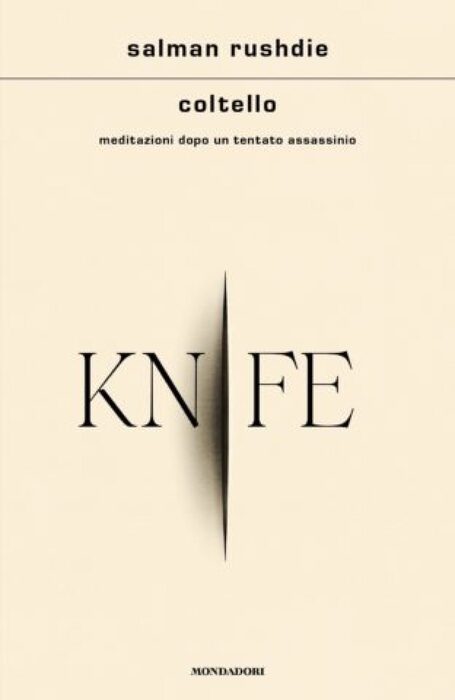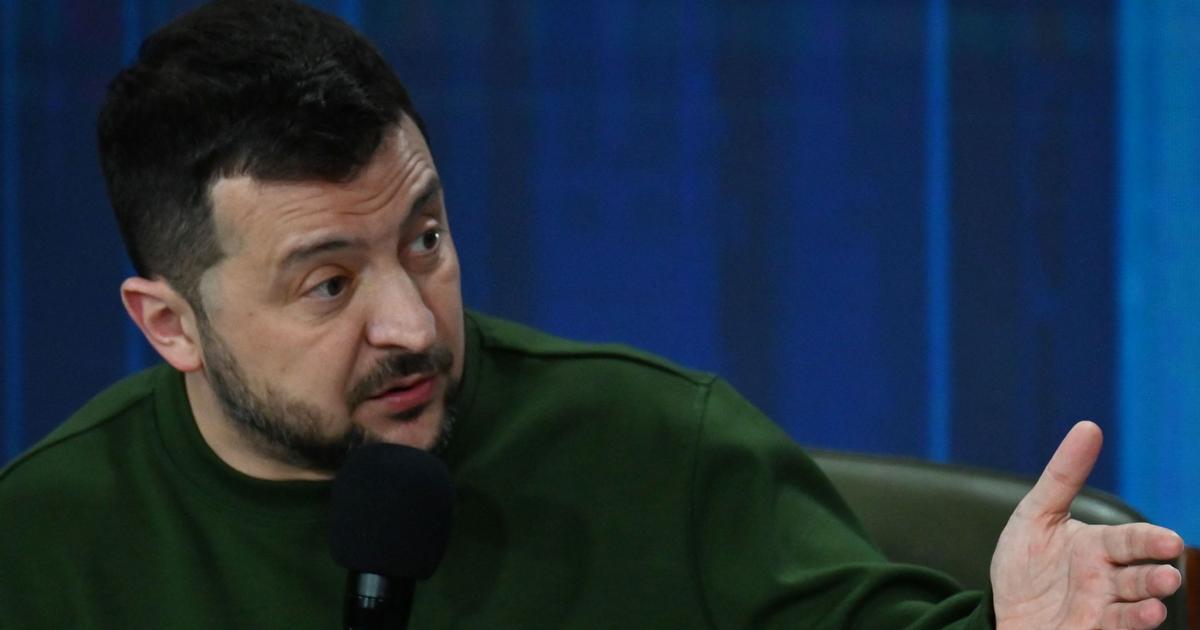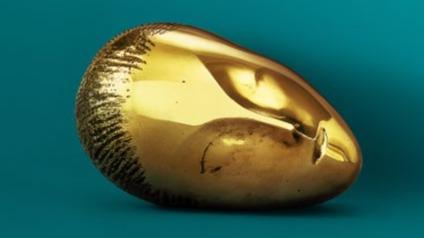In the images that the press has published in recent days —a photo from
The New Yorker
magazine , an illustration in EL PAÍS—, Salman Rushdie wears glasses similar to those he has worn for years, but one of the lenses, the of the right eye, it is black.
The images have appeared about
Ciudad Victoria
, the novel that Rushdie finished correcting in July of last year;
Three weeks later, as he was preparing to speak publicly in support of refugee writers around the world, a black-clad Islamist fanatic came onstage and stabbed him.
As a result of the attack, Rushdie lost his right eye and the partial use of one hand, and scars were left on his face and neck that are still visible;
and the new images have become, at least for me, a stubborn memorandum of what happened in August, but also a moving testimony of the amazing resistance of the man.
Here is Rushdie, six months after the assault that nearly killed him, ready to remain a novelist: ready to let nothing, not even the irrational violence that has derailed his life, take away that right.
Everyone knows the outlines of this strange life that has been forced to lead by the darkest forces of our time.
Everyone knows that he published a novel called
The Satanic Verses
in 1988, that Ayatollah Khomeini sentenced him to death for blasphemy, that he was forced to spend more than a decade hiding from the world so that fanatics wouldn't kill him, and that from a certain moment he decided that he would not hide anymore.
The first time I spoke to him on stage, in the spring of 2009, it was to present his novel in a library in Barcelona.
The Enchantress of Florence
, and what I remember most—apart from arriving at the scene in an armored van with armed escorts—is the expression of stubbornness with which she refused to put on a bulletproof vest like the ones worn by press people from the editorial.
They were his efforts to recover the normality that the persistent threat had stolen from him, and he carried them out trying at the same time that his companions did not go through more discomfort than necessary.
But all this was visible: behind the anecdote there was a more complex story.
Rushdie wrote it down in
Joseph Anton
, a courageous and lucid book that anyone should read to fully appreciate the scale of the August bombing.
They are the memories of the years of the fatwa, recounted from that document that should cause us shivers of fear and that many, however, tolerated or justified: "I inform the proud Muslims of the world that the author of the book of
Verses satanic,
that goes against Islam, the Prophet and the Qur'an, and all those involved in its publication who were aware of its content are sentenced to death."
The title of the memoirs is the pseudonym Rushdie chose to lead his clandestine life, a composition made up of the first names of Joseph Conrad and Anton Chekhov: in Rushdie's words, "the creator of secret agents in a world of assassins" and the “master of loneliness and melancholy”.
The voice that tells the book is one of its most surprising features.
It is a third person who speaks of the protagonist as if he were different from the author, as if Rushdie had wanted, through this simple resource, to avoid any tone of victimhood or complaint, or at least mitigate it.
But the fact that there is no complaint does not mean that there is not a certain melancholy: because of human weakness, that of individuals and also that of societies, and because of the frequency with which so many people worthy of greater insight did not live up to the events.
Read
Joseph Anton
it is to lament for almost seven hundred pages our myopia, our pusillanimity and our inability to support a man sentenced to death for writing a book.
The Archbishop of Canterbury, for example, called for us to be "more tolerant of Muslim anger";
to too many of his colleagues, Rushdie "asked for it," or "misjudged people" and was therefore responsible for his own tragedy;
to others, he was simply an opportunist who had found a new way to advertise himself.
Rushdie was faced with this paradox: he was hiding so they wouldn't kill him, but the fact that he wasn't killed, by some bizarre twist of mind, became incontrovertible proof that no one wanted to kill him.
And the world judged him for it.
In the British tabloids, but also in the serious press, he was criticized for being an exhibitionist, for having bodyguards as if he were a king, for his supposed arrogance that was taken for granted without any more proof than the most frivolous rumors or the dislikes of a journalist .
There is a fascinating moment when Rushdie, who has droopy eyelids due to an unavoidable hereditary genetic trait, has them removed simply to see normally again, and realizes that they have always been part of the problem: the expression in his eyes. drooping eyelids made him unsympathetic to many people,
or gave the impression of arrogance.
Rushdie, one of the kindest people I know, found that he was fighting an impossible enemy: "The idea that he was not a very nice man," he writes, "was going to prove very damaging."
The singer Cat Stevens, a convert to Islam, appears on television to wish him dead and to declare himself willing to call the assassination squads if he finds out where he is.
The novelist John Le Carré, whose novels I have admired for their moral insight, declares that no one has the right to "be flippant to the great religions with impunity," and that Rushdie should "take the books away from him until quieter times come." .
And in this landscape of unhappiness and disappointment, those who dared to defend Rushdie seem to be defenders of something much bigger.
Which they were, without a doubt: Mario Vargas Llosa, Carlos Fuentes, Nadine Gordimer, Umberto Eco, Christopher Hitchens, José Saramago and many others appeared at public events and signed open letters, and Bono invited him up on stage at a concert;
The Satanic Verses
, Hitoshi Igarashi, and in which its Norwegian editor, William Nygaard, had narrowly survived a gunshot attack.
Joseph Anton
ends in March 2002, with a conversation between Rushdie and two officers from the Special Branch of the police.
After 13 years protecting you, they have come to notify you that the threat level has dropped drastically;
if he agrees, they can withdraw the protection.
They ask him if that's acceptable to him, and he says yes.
The rest is already known: Rushdie has since published about fifteen books, has appeared in television sitcoms to mock his very serious fate, has defended freedom of expression in forums around the world.
Above all, he has survived the savage attack by a fanatic who later, in an interview with a tabloid, confessed that he had never read
The Satanic Verses.
, but that he had seen videos of Rushdie on YouTube.
“I don't like him very much,” she said.
Who wants to talk about the banality of evil?
Juan Gabriel Vásquez
is a writer.
Subscribe to continue reading
Read without limits
Keep reading
I'm already a subscriber

/cloudfront-eu-central-1.images.arcpublishing.com/prisa/UYIMKZCI6RFQ3MGUSGJXVJGZMQ.jpg)







/cloudfront-eu-central-1.images.arcpublishing.com/prisa/2C5HI6YHNFHDLJSBNWHOIAS2AE.jpeg)



